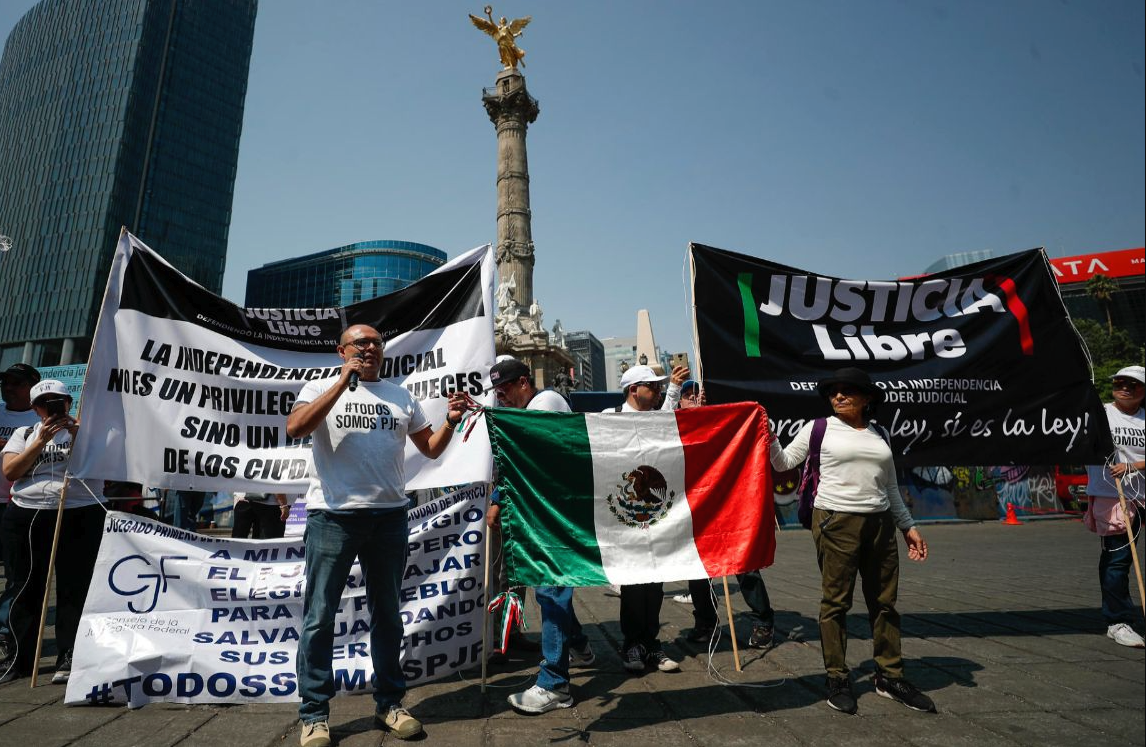After the triumph of the Together We Will Make History coalition in the June 2 elections and the confusion of the social and political opposition, the so-called 20 farewell constitutional reforms of President López Obrador have come to light, especially the one aimed at re-founding the Judicial Power, considered by him as “corrupt”, for which it is necessary to clean it up completely by means of the controversial popular election of judges, magistrates, and ministers.
For what is already part of history, a strategy was implemented in which the Executive Branch — through the Ministry of the Interior — made known, before the National Electoral Institute (INE), the preliminary results of the presidential and congressional elections. It was especially noteworthy that the winning coalition had obtained a qualified majority in the Chamber of Deputies by obtaining 72 percent of the political representation, which means that the coalition parties can change the Constitution without the need to make a pact with the opposition parties.
This “line” dictated from the presidential power was immediately reproduced and became socialized in such a way that, except for isolated voices, it was questioned, since the mentioned coalition, as we now know, had only reached 54% of the votes cast and, added to the legal over-representation of 8%, it was only enough to have 62% and not 72% of the deputies in the lower chamber — the upper chamber of senators has tentatively remained at 82 against the 84 needed to have a qualified majority there as well.
The discussion, which so far is mainly mediatic, will have to be staged within the General Council of INE, which is the constitutional instance that will have to make the distribution calculation according to the provisions of Article 54 of the Constitution. However, there is also Article 41, which establishes in sections A and B what is related to political parties in different items and does not refer at any time to coalitions, so that the Manichean and unconstitutional principle “what is valid for parties is also valid for coalitions” would be valid.
The General Law of Political Parties expressly states it when it affirms, for example, in article 91, second section: “The coalition agreement shall state that the coalition political parties, according to the type of coalition in question, shall be subject to the campaign expense ceilings that have been set for the different elections as if they were a single party. Likewise, the amount of the contributions of each coalition political party for the development of the respective campaigns must be indicated, as well as the manner of reporting it in the corresponding reports”.
And so on for everything that has to do with coalitions (financing, gender parity, etc.). Therefore, with these constitutional and regulatory precepts, the constitutional discussion is not closed and must be carried out within the General Council of INE before rejecting or certifying the misplaced pronouncement made by the Secretary of the Interior the day after the constitutional elections.
And this, as various political observers have noted, must be understood as a substantive understanding, reflecting the constitutional and regulatory essence of matters concerning political parties and coalitions, which should not differ, contrary to what the official stance suggests.
A literal and biased reading of Article 54 of the Constitution would lead to the imposition of the qualified majority in the Chamber of Deputies and, to a lesser extent, in the Senate.
Without these counterweights, the president, and the future president, would go for total control of the Judicial Power through the most popular lawyers. Seen in the light of other Latin American experiences — especially the Bolivian one—, it would mean what the North American political scientist Gene Sharp calls “soft coup d’état”, with a very Mexican singularity, since this type of intervention in the so-called lawfare (legal war or judicial war) that today the “left” pretends to make has traditionally been suffered, as it happened in Brazil, where presidents Lula da Silva and Dilma Rousseff fell, one in jail and the other out of office.
In short, what INE and the Electoral Tribunal of the Judiciary of the Federation resolve, in terms of the integration of the Congress of the Union, will undoubtedly open a compass between the consolidation of democracy preserving the indispensable counterweights to the absolute, omnipotent and all-embracing presidentialism, and the debacle with a hyper-presidentialism without counterweights.
This is the magnitude of what is at stake in Mexico in the coming months.
*Translated by Janaína Ruviaro da Silva from the original in Spanish.











